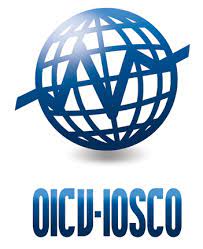The International Organization of Securities Commissions (IOSCO) is seeking feedback from the industry on its latest set of ETF good practices which include a focus on the relationship between ETF issuers and authorised participants (APs).
The ETF good practices were initially published by IOSCO in 2013 with the global watchdog seeking responses from the ETF industry to the proposed changes by 6 July.
There are a number of key updates to the list of good practices including new disclosure requirements around secondary market trading costs, the requirement of ETF issuers to “conduct due diligence” on APs and market makers and requirements to help investors differentiate ETFs from other ETPs.
In particular, IOSCO stressed that ETF issuers should avoid exclusive arrangements with APs and market makers as this could impact “the effectiveness” of the arbitrage mechanism.
Earlier this year, research published by the London Business School found mispricing in the US equity ETF market is directly correlated to the number of APs involved in the creation-redemption process.
IOSCO said: “Responsible entities are encouraged to conduct due diligence on APs and market makers when onboarding them to the ETF, with a view towards having those that are capable of facilitating an effective arbitrage mechanism and providing liquidity and conduct ongoing monitoring on APs and market makers for the ETF regarding the functioning of the arbitrage mechanism and liquidity provision.”
In the proposal, the regulator added ETF issuers should put in place “contingency plans” if the ETF arbitrage mechanism becomes impaired.
Elsewhere, IOSCO said local regulators should consider disclosure requirements for ETF fees and expenses which include secondary market costs in order to allow “investors to make informed decisions about whether they wish to invest in an ETF and thereby accept a particular level of costs”.
When considering the question of non-transparent ETFs, the proposal encouraged regulators to ensure market participants have the right information in order to facilitate effective arbitrage.
This is potentially a positive sign for the structure that has not yet been given the green light by the Central Bank of Ireland which still requires ETFs to publish holdings daily.
The global watchdog concluded: “The proposed good practices are intended to supplement the 2013 ETF Principles and ensure that IOSCO’s guidance on ETFs remains up-to-date and keeps pace with the significant market developments since the publication of the 2013 ETF principles, taking into account differences among jurisdictions in the way ETFs operate, the way they are regulated, and the markets in which they trade.”
Last August, IOSCO joined other industry bodies such as the Bank for International Settlements and the Bank of England in finding ETFs passed the COVID-19 stress test with flying colours in March 2020.
Related articles



